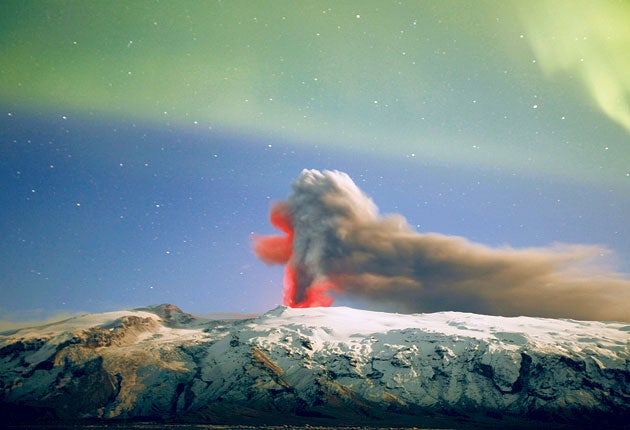Airline to test 'silver bullet' for detecting clouds of volcanic ash

Your support helps us to tell the story
From reproductive rights to climate change to Big Tech, The Independent is on the ground when the story is developing. Whether it's investigating the financials of Elon Musk's pro-Trump PAC or producing our latest documentary, 'The A Word', which shines a light on the American women fighting for reproductive rights, we know how important it is to parse out the facts from the messaging.
At such a critical moment in US history, we need reporters on the ground. Your donation allows us to keep sending journalists to speak to both sides of the story.
The Independent is trusted by Americans across the entire political spectrum. And unlike many other quality news outlets, we choose not to lock Americans out of our reporting and analysis with paywalls. We believe quality journalism should be available to everyone, paid for by those who can afford it.
Your support makes all the difference.A "silver bullet" for airlines to avert future disruption from volcanic activity was unveiled yesterday by the UK's leading budget airline, easyJet. The carrier incurred losses of up to £75m when Europe's airspace was closed following the eruption of an Icelandic volcano in April and May. It now aims be the first airline to trial a new device called the "Airborne Volcanic Object Identifier and Detector" (AVOID).
The system uses infra-red technology to detect volcanic ash up to 60 miles away, at altitudes ranging from 5,000ft to 50,000ft – well above the maximum height for easyJet's aircraft. It gives pilots essentially the same kind of intelligence on ash as they currently get from weather radar to help them avoid thunderstorms; this is standard equipment on commercial jets. Besides enabling the captain to avoid areas of volcanic ash in the flight path, the system makes it possible to pass information on ash to ground stations, to assist other aircraft.
Initially, easyJet will work with the manufacturer Airbus to evaluate the technology. An A340 test aircraft will be flown through varying levels of volcanic ash. If the equipment responds correctly, 12 of the airline's Airbus jets will be fitted with the device.
Andy Harrison, chief executive of easyJet, described the technology as a "silver bullet". He told The Independent: "We believe in it, we think it works, so we've taken the bull by the horns; we're going to spend £1m on improving it and putting it onto our aeroplanes."
The system was developed by Dr Fred Prata, senior scientist at the Norwegian Institute for Air Research. He said his invention was "a tactical device rather than a strategic one", and was designed to provide live data to enhance the computer models whose predictions led to the closure of much of northern Europe's airspace, affecting millions of travellers. Dr Prata said the models were robust, despite the criticism they had received, and that it was the data that was lacking. "If we knew how much was coming out of the volcano, we'd have a much better idea – but we don't," he said.
Andrew Haines, chief executive of the Civil Aviation Authority, rejected the suggestion that his organisation had over-reacted: "Until we could get complete assurance about the risks, [closing airspace] was absolutely justifiable. The choice otherwise would be to say 'We'll keep our fingers crossed.'"
Mr Harrison said there was no evidence that passenger confidence in safety or reliability had been dented, adding that the airline had filled almost 86 per cent of seats on flights in May, an improvement of 2.3 per cent compared with May 2009.
Earlier, British Airways had revealed a fall of 5.4 per cent in seats filled for the same month, largely as a result of the cabin-crew strike.
The final five-day strike in the current phase of industrial action begins today. All BA services from Heathrow to Manchester, Edinburgh and Glasgow today have been grounded, but the airline says it intends to operate 60 per cent of short-haul and 80 per cent of long-haul flights from Heathrow. Services from Gatwick and London City are operating normally.
Join our commenting forum
Join thought-provoking conversations, follow other Independent readers and see their replies
Comments